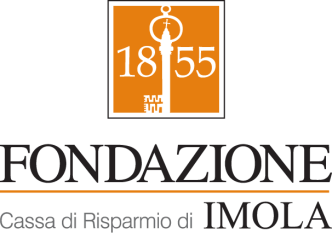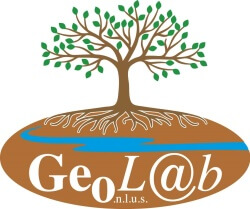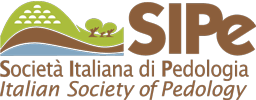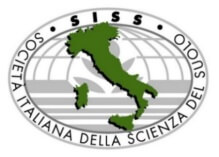About the Journal
Focus and Scope
EQA is an international, multidisciplinary and peer-reviewed journal that encourages high-quality submissions of original research or brief reviews and analyses dealing with the aspects concerning soil, water and air quality and the sustainable use of these environmental resources. Main research areas include: natural and anthropogenic processes affecting the soil, water and air biota; contamination of soil, water and air caused by waste management and disposal practices; ecological effects of pollutants in air, water and soil environments; environmental quality management techniques, methods, approaches and experiences to improve and remediate the environment and the dissemination of such knowledge. EQA particularly welcomes work addressed to scientific researchers in environmental sciences, agricultural and biological sciences.
EQA has been supported by the European Society for Soil Conservation (ESSC), Italian Society of Soil Science (SISS – Società Italiana della Scienza del Suolo), Italian Society of Pedology (SIPE – Società Italiana di Pedologia).
Journal History
The acronym EQA derives from "Environmental quality-Qualitè de l'Environment-Qualità ambientale", title of the proceedings of scientific conference that have been held annually in Imola (Italy) since 2006. In the proceedings, each paper had a title, abstract and keywords in the three languages (English, French and Italian), while the text of the manuscript could be written in one of the languages.
In 2009 the annual proceedings were published together with the first two volumes of the "International Journal of Environmental Quality", where 16 articles were published. From 2010 to 2013, three volumes of “International Journal of Environmental Quality" were published per year; from 2014 to 2019 there were four volumes per year; in 2020 five volumes were published, and in the last two years (2021-2022) thirty articles in six volumes. Over the years, therefore, the journal has experienced a slow but continuous progression in the number of articles and volumes published.
In 2019, for the celebration of the 10th anniversary of EQA, the editorial format of the published papers changed, improving the readability of texts, figures and tables.
Peer Review Process
EQA is a peer-reviewed open access journal. All publications in EQA undergo a single blind peer review process.
Submitted manuscripts will be assigned to one of the EQA editors. As part of the initial quality assessment, each article will undergo plagiarism detection through iThenticate. The editor and editorial board member will promptly assess the manuscript and will decide if it is likely to meet the requirement of providing a major advance in a particular field and describing a sufficient body of work to support that claim. After this formal assessment, if positive, the submission will be sent to two external referees, who are chosen on the base of their expertise and knowledge on the selected paper topics. The editor then makes a decision based on the reviewers' comments. There are several types of decision possible:
- Accept the manuscript as submitted
- Accept it with minor revision
- Invite the authors to submit a major revision of the manuscript before a final decision is reached
- Reject, typically because it does not fit the criteria outlined above of originality, importance to the field, cross-discipline interest, or sound methodology
When differences of opinion occur between reviewers, the editor weigh all comments and arrive at a balanced decision based on all comments. To assist in this process, the reviewer should provide the editor with as much information as possible. A review that clearly outlines reasons both for and against publication is therefore of as much, or even more, value as one that makes a direct recommendation.
If reviewers appear to disagree fundamentally, the editor may choose to share all the reviews with each of the reviewers and by this means elicit additional comment that may help the editor to make a decision. The editor then assesses the recommendations and comments of the reviewers alongside comments by the authors and material that may not have been made available to those reviewers. The names of the reviewers are hidden from the authors.
When a paper has been revised in response to comments by reviewers or when authors feel their argument has been misconstrued in review, we ask reviewers to offer additional comments on the revised or contested manuscript. We request that reviewers make themselves available to provide such follow-up advice. We are nevertheless aware that reviewers do not wish to be involved in extended discussions over papers, and we keep such consultations to a minimum while still allowing authors a fair hearing.
Publication Frequency
The journal is published six times a year. Each issue remains open according to a continuous update mode until the publication of the following volume.
Open Access Policy
This journal provides immediate open access to its content on the principle that making research freely available to the public supports a greater global exchange of knowledge.
It releases its articles under the terms of Creative Commons Attribution 4.0 International License.
This license allows anyone to download, reuse, re-print, modify, distribute and/or copy the contributions without commercial purposes. The works must be properly attributed to its author(s). It is not necessary to ask further permissions both to author(s) or journal board, although you are kindly requested to inform the journal for every reuse of the papers.
Authors who publish on this journal maintain the copyrights.
Authors are welcome to post the final draft post-refereeing (postprint) on a personal website, a collaborative wiki, departmental website, social media websites, institutional repository or non-commercial subject-based repositories.
Publication Fees
The journal has neither article processing charges nor submission processing fees.
Ethics
EQA adopts the AlmaDL Journals Code of Ethics.
The code is inspired by the guidelines from the Committee on Publication Ethics (COPE), in particular to the COPE Core Practices and its Principles of Transparency and Best Practice in Scholarly Publishing.
All parties involved in the editorial process, editorial staff members, authors, reviewers must know and apply the ethical principles of that document.
Data Policy
When relevant, authors are encouraged to follow Open Science and FAIR principles by publishing the research data associated to their articles in trusted data repositories, according to the international best practices and data management guidelines.
Detailed information is reported in the AlmaDL Journals Data Policy.
Authors who are affiliated to the University of Bologna can publish their data in AMSActa, the institutional research data repository.
Indexing and Abstracting
- ACNP – Italian Catalogue of Serials
- BASE – Bielefeld Academic Search Engine
- DOAJ – Directory of Open Access Journals
- EZB – Electronic Journals Library, University of Regensburg
- Google Scholar – Academic search engine
- Jisc Library Hub Discover
- JournalTOCs – International aggregator of scientific articles TOCs
- Mir@bel – (Re)cueillir les savoirs
- Open Policy Finder – Open Access policies database
- ROAD – Directory of Open Access Scholarly Resources
- Scopus – The largest database of peer-reviewed literature
- Ulrichsweb
- Web of Science – Emerging Sources Citation Index (ESCI)
- Worldcat – The world’s largest library catalog
- ZDB - Zeitschriftendatenbank – German Union Catalogue of Serials
Archiving Policy
As part of AlmaDL Journals, the Journal adopts a strategy to ensure long term preservation of the published content. Please see the archiving policy of the publishing service AlmaDL Journals.
Publisher
Alma Mater Studiorum – Università di Bologna
Alma Diamond – open scholarly communication
Via Zamboni 33,
40126 - Bologna (Italy)
Ownership
Department of Agricultural and Food Sciences – DISTAL
Alma Mater Studiorum – Università di Bologna
Viale Giuseppe Fanin, 44
40127 - Bologna (Italy)









